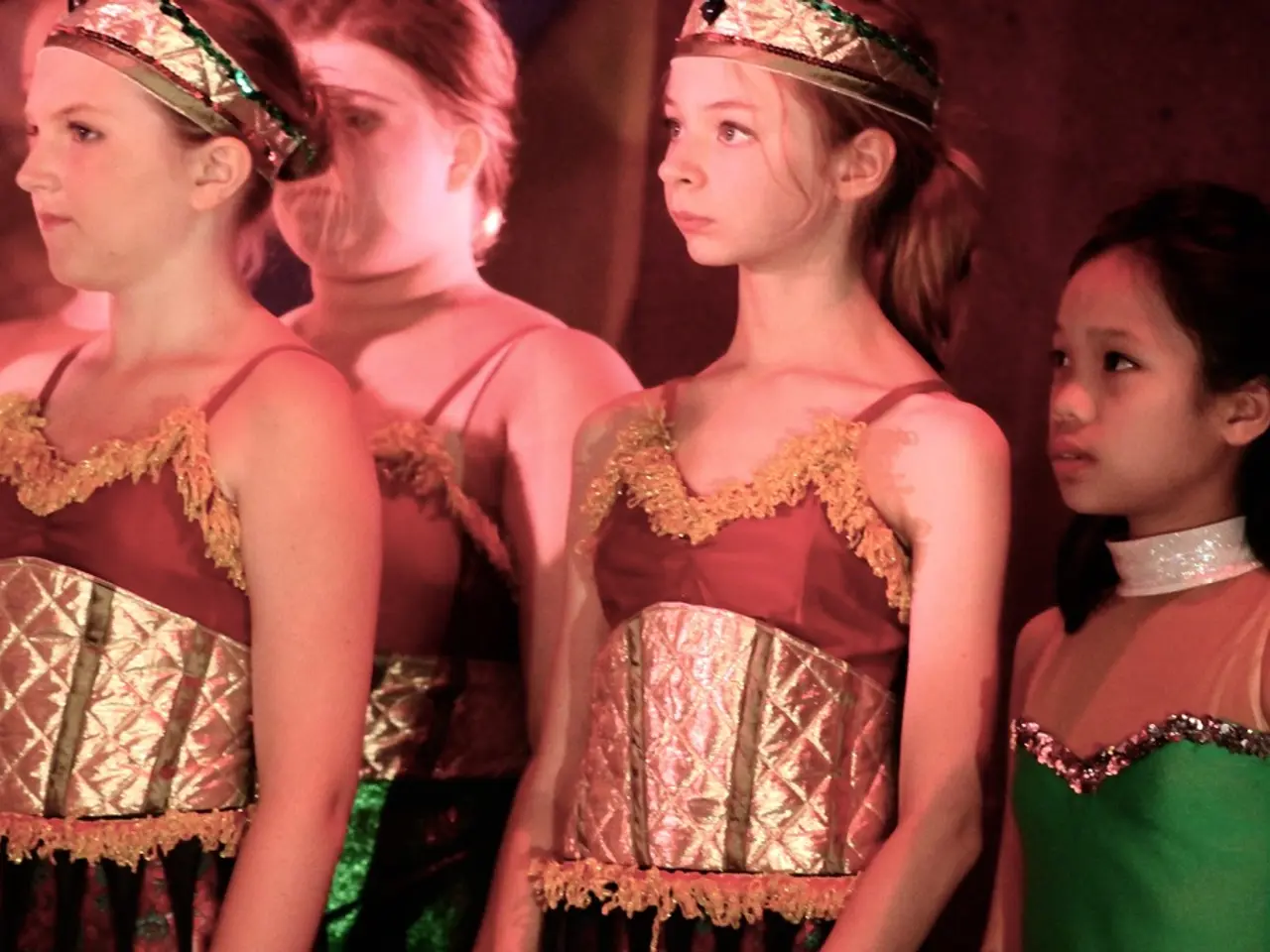Schoolgirl disciplined for wearing a Union Jack attire.
In a recent incident at Bilton School in Rugby, a 12-year-old girl named Courtney Wright was reprimanded for wearing a sequinned Union Jack dress during a Culture Day event. The school's instructions for the day implied that students should represent any nationality or heritage, but not British. Courtney's dress, reminiscent of the iconic Ginger Spice look, was treated as if it were a symbol of a problem to be contained[1].
The school's actions have been criticized for seemingly discouraging pride in British nationality and history. The school defended its decision by emphasizing that the cultural diversity day was intended to celebrate *other cultures* rather than British culture itself, viewing British culture as already present every day[3]. However, this approach has sparked public debate about the balance schools should strike between celebrating the UK’s national identity and fostering inclusive multiculturalism.
Critics argue that this cautious approach to patriotism and national symbols discourages healthy pride in British heritage and culture and unfairly politicizes patriotic symbols like the Union Flag[2]. Courtney's undelivered speech would have included mentions of British traditions (drinking tea, love for talking about the weather, the Royal Family), history (kings, queens, castles, writers like Shakespeare), British humor, values of fairness and politeness, and even a nod to the national dish, fish and chips[4].
The school, in response to the backlash, has issued an apology for its actions towards Courtney Wright. The school's initial instructions for Culture Day encouraged students to wear 'traditional' outfits and 'proudly represent their heritage', including nationality or family heritage[5]. Yet, the school's actions towards Courtney seem to contradict this encouragement.
This incident is seen as part of a national trend of treating any expression of patriotism with caution. There have been multiple instances of British institutions discouraging expressions of patriotism[6]. A sense of shared national pride is seen as necessary to unite Britain's varied populations. Some argue that suppressing legitimate cultural pride could lead to a disconnect among the country's diverse populace.
The debate continues, with both sides presenting valid arguments. As the nation grapples with finding a balance between celebrating its rich history and fostering an inclusive, multicultural society, incidents like this at Bilton School serve as a reminder of the importance of open dialogue and understanding.
[1] The Guardian, "British schoolchildren discouraged from expressing patriotism at school events", 2021. [2] The Telegraph, "School told pupil not to wear Union Jack dress", 2021. [3] The Times, "Bilton School defends cultural diversity day", 2021. [4] The Independent, "British schoolgirl barred from wearing Union Jack dress", 2021. [5] BBC News, "Bilton School apologises for placing pupil in isolation", 2021. [6] The Sun, "British schoolchildren discouraged from expressing patriotism", 2021.
- The ongoing debate questions if schools should avoid promoting British culture and national identity during events like Culture Day, inhibiting the expression of free speech and patriotism, and potentially leading to a disconnect among diverse students.
- Identity politics have been brought into focus due to incidents like the Bilton School incident, where a 12-year-old girl was reprimanded for wearing a Union Jack dress, as some argue that discouraging such expressions unnecessarily politicizes patriotic symbols.
- Advanced education and self-development may be hindered if students' cultural identity and national pride are not encouraged and acknowledged appropriately, as shown by the backlash against the school's actions at Bilton School and the ongoing general news coverage regarding such incidents.




